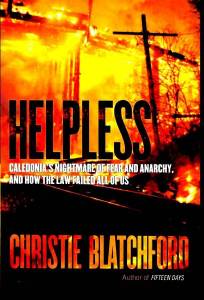These days, the police cruisers don’t even slow down when they patrol a gravel quarry occupied by native protesters from the Bay of Quinte Mohawks. Despite claims these protesters are armed and willing to exact a price for the slow pace of land claims with threats to block the country’s busiest rail line and its most travelled highway, no one in authority appears to be hurrying to dislodge the demonstrators, nor address their demands.
As it is here in Deseronto, so it is in Caledonia, so it was in Ipperwash. Familiar standoffs all, but these flashpoints are but a handful of the more than 1,300 centuries-old native land disputes that have been stalled for decades and that touch virtually every corner of Canada– urban, rural and wild.
“There’s hardly a road, a railroad line, a transmission line or an oil pipeline that doesn’t go through some disputed property [or] territory,” said David Peterson, a former Ontario premier, days after the blockade went up at Deseronto.
A recent report by the Senate Standing Committee on Aboriginal Peoples painted a similarly bleak picture. “The committee feels that eliminating the delay in settling specific land claims is an outright necessity, not only for the claimants, but for Canadians in general,” said the report. “Failing to find the political will to act appropriately on specific claims could invite more confrontations. The choice is Canada’s.”
(Edit: Threats, Threats, and more Threats)




